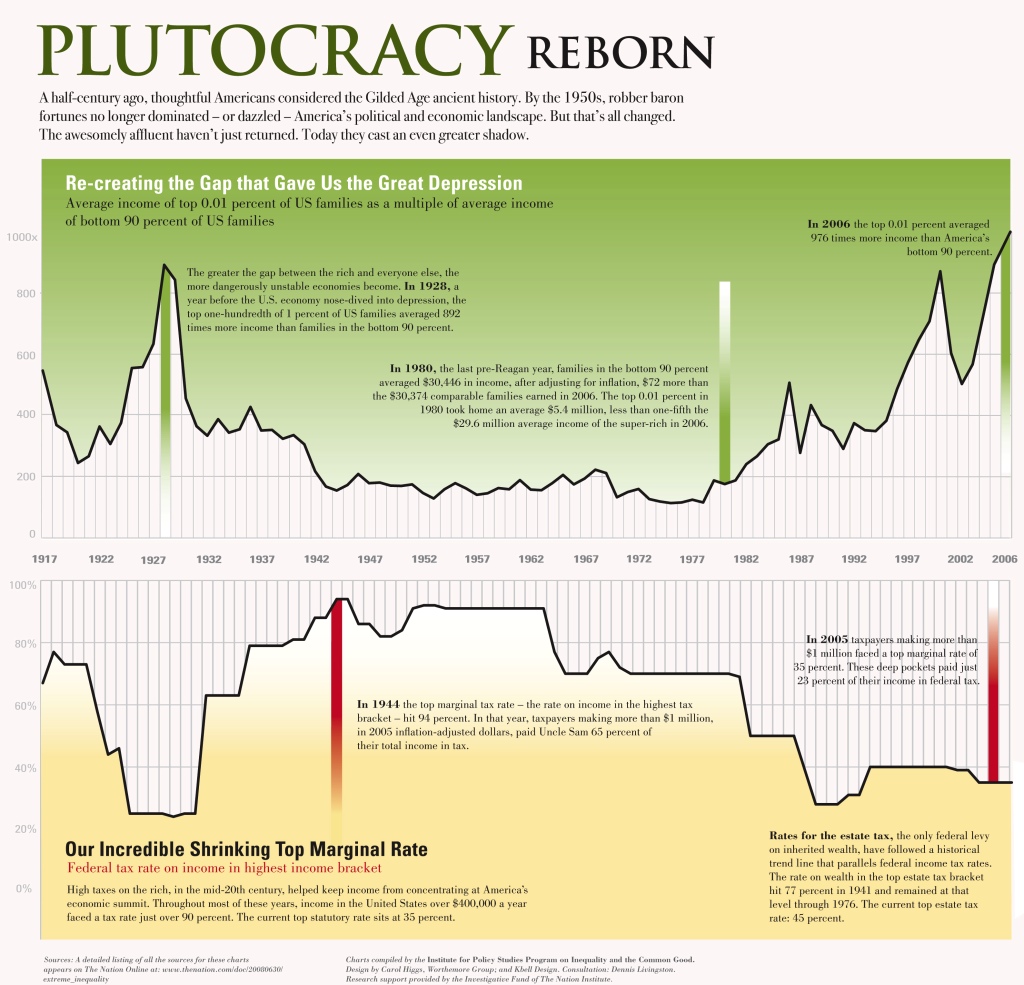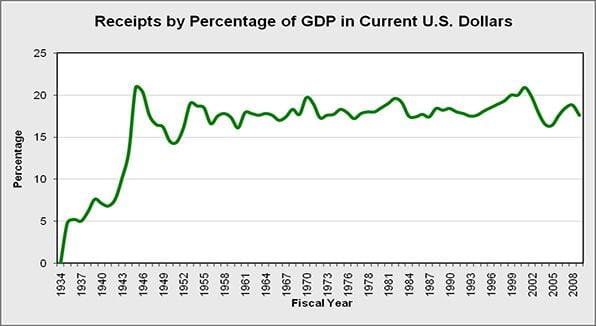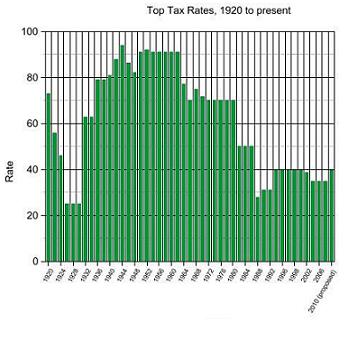Hi. I recently read that the current US federal budget predicts the US debt to GDP ratio will reach over 70% in 2011 and about 80% by 2020. This analysis assumes fairly strong economic growth. The question that springs to mind is, if a budget surplus can't be achieved during a ten year period of growth, when can it?
Steven.



